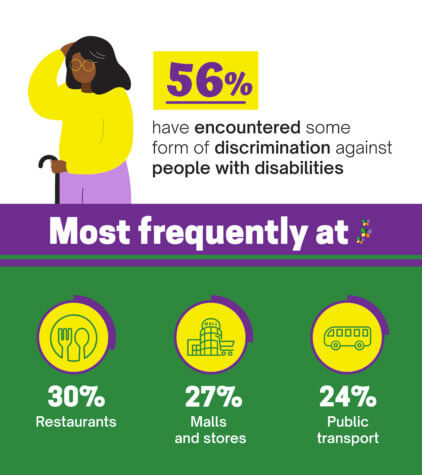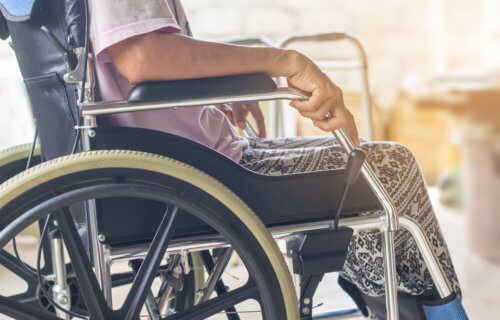NEW YORK — More than half of Americans have encountered some form of discrimination against people with disabilities. A new survey reveals that out of 2,000 respondents only 43 percent have never witnessed any instances of a disabled person being discriminated against.
 So where does this terrible behavior typically occur? Fifty-six percent say they’ve seen discrimination taking place in-person, most frequently at restaurants (30%), malls and stores (27%), and public transport (24%). Despite these sobering numbers, most Americans think the country is becoming more inclusive towards people with special needs.
So where does this terrible behavior typically occur? Fifty-six percent say they’ve seen discrimination taking place in-person, most frequently at restaurants (30%), malls and stores (27%), and public transport (24%). Despite these sobering numbers, most Americans think the country is becoming more inclusive towards people with special needs.
The survey was conducted by OnePoll on behalf of Morgan’s Inclusion Initiative, a 501 c3 nonprofit dedicated to creating places for people of all abilities.
Not enough people are helping fight discrimination against disabled individuals
Results show only 28 percent of respondents are involved with a local disability advocacy group in their community. Out of those who aren’t, one in four cite a lack of personal connection to the issue.
When there is that personal connection however, that number jumps up. In fact, 78 percent of parents of children with a disability note that they are involved with disability advocacy groups.
“We’ve seen firsthand that strong and continuing emphasis needs to be focused on bringing together those with and without special needs for a greater understanding of one another,” says Gordon Hartman, chairman of the board of Morgan’s Inclusion Initiative, based in San Antonio, Texas, in a statement.
What keeps people from supporting these causes?
Parents also listed some of the difficulties they face in their local communities when it comes to disability awareness. According to one respondent, people need to make more of an effort to “recognize [that] not all disabilities are physical.”
Another says that their adult child has “a chronic illness disability. There is very little support for these types of invisible illnesses.”
“We’ve come a long way in spotlighting inclusion, yet we need to continue looking for opportunities to make this a more inclusive nation for individuals with special needs,” Hartman adds. “All of us – whether we have a personal connection to this issue or not – can become advocates for inclusion.”
